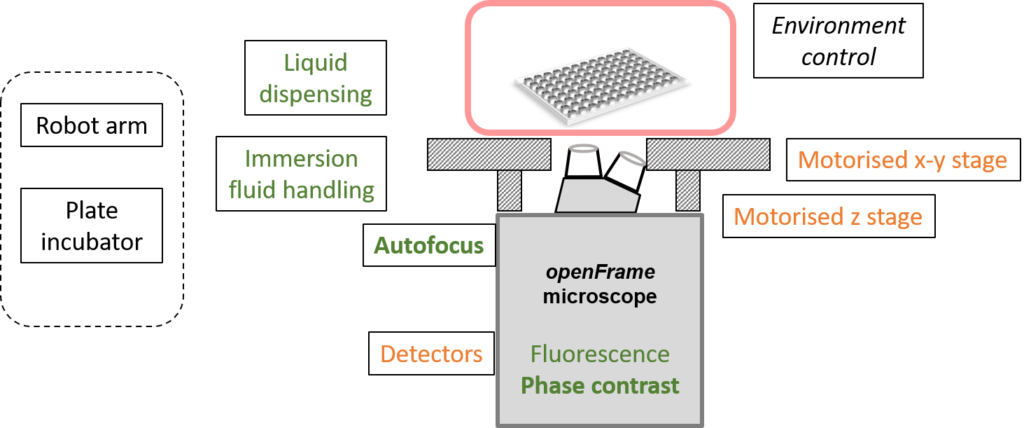As part of their openScopes initiative, the Photonics Group at Imperial is developing low-cost, modular automated microscopes for high content analysis that are controlled by open-source software like µManager. At the heart of any HCA is an automated microscope with motorised x-y stage to move the field of view across an array of samples – typically in a multiwell plate format – with motorised z-drive for focussing and acquisition of z-stacks for 3D imaging. All the CRUK Accelerator instruments are fully motorised to enable HCA and we are developing open-source software to control the image data acquisition and are working on open-source image data analysis pipelines. Almost any imaging modality can be automated for HCA and we have already demonstrated FLIM HCA, OPM HCA, which are being refined as part of this CRUK Accelerator project, as well as super-resolved microscopy (SRM) HCA.
For unsupervised imaging of sample arrays, it is essential to implement an “autofocus” that can automatically determine the extent to which the instrument is out of focus and then correct this, typically by axially translating the microscope objective lens or the sample stage. This is necessary because the microscope can drift out of focus over time, e.g., due to thermal changes or mechanical relaxation of components, and because the focus condition of the microscope can change when the sample array is translated to image the next field of view. We have developed an open source optical autofocus system that can be implemented on proprietary microscope frames or on an openFrame instrument.

As part of our mission in this CRUK Accelerator to make advanced imaging capabilities more accessible, we are developing the M3M HCA instrument to be fully open-source, incorporating our open optical autofocus and µManager data acquisition software. We will also test novel low-cost, high performance cooled CMOS cameras and aim to integrate semi-quantitative phase contrast with multiphoton multibeam multiwell plate fluorescence imaging.
